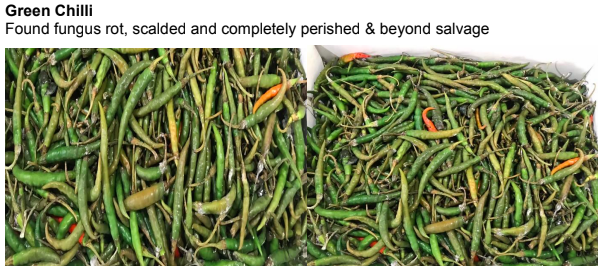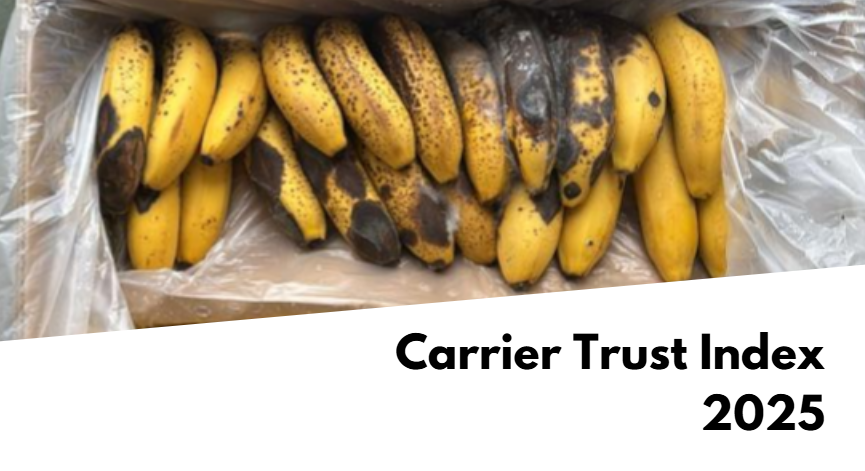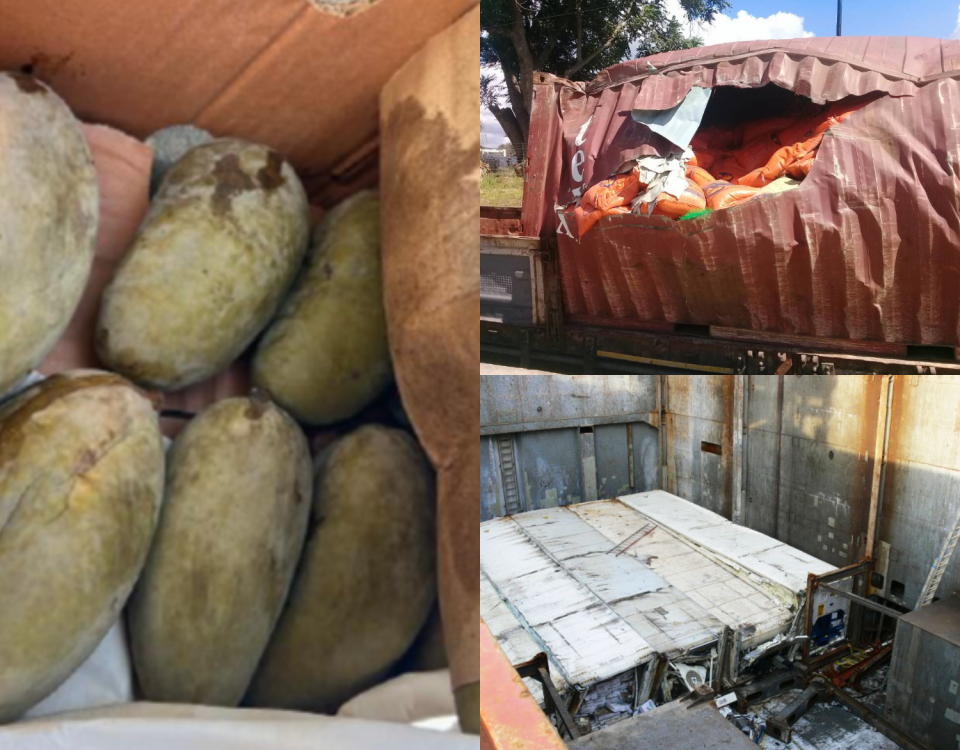5 Unforgivable Reefer Cargo Mistakes

Cargo Theft in Transit: A Costly Cargo Claim
July 28, 2023
Top Fruit Exports and How to Avoid Cargo Claims: Strawberries
July 28, 2023Let’s uncover common yet avoidable mistakes that can lead to disastrous consequences in cargo claims.
Mistake 1: Ignoring Temperature Unit Conversion
One of the most common errors made during cargo transportation involves the improper conversion of temperature units. When dealing with international shipments, confusion between Celsius and Fahrenheit can wreak havoc. For instance, if the recommended temperature for custard apples is 12°C, setting the reefer at 12°F will expose the cargo to freezing temperatures, leading to irreversible damage.
Mistake 2: Poor Cargo Loading Practices
Cargo hot stuffing, inadequate packaging, and improper loading are among the most commonly encountered mistakes made by exporters, which could easily be avoided with proper diligence and attention to detail. Hot stuffing cargo can lead to spoilage and damage during transit. Inadequate packaging can result in breakage and loss of goods, while improper loading can cause instability and accidents during transportation. Additionally, exceeding weight or volume limits, can lead to costly fines and delays. Be aware of these potential pitfalls and take appropriate precautions.
Mistake 3: Shipping Different Cargoes in the Same Container
Chilies and pomegranates possess vastly different requirements when it comes to transportation and storage due to their specific temperature sensitivities. Chilies thrive in warmer climates and are highly susceptible to chilling injuries, which occur when they are exposed to temperatures below 10°C (50°F). On the other hand, pomegranates prefer a cooler environment and can withstand temperatures as low as 5°C (41°F) without compromising their quality. When attempting to ship these fruits together, finding an average temperature that suits both becomes challenging.
If stored at the optimal temperature for chilies, pomegranates may suffer from cold damage, leading to discoloration, texture degradation, and a shortened shelf life. Conversely, higher temperatures suitable for pomegranates could cause chilies to deteriorate rapidly, impacting their flavor and appearance. Therefore, transporting these two not compatible fruits and vegetables under the same average temperature poses significant logistical hurdles, requiring careful consideration and separate storage conditions to maintain their individual freshness and appeal.
Mistake 4: Insufficient Documentation
Accurate and comprehensive records encompassing precise loading documents, discharge documents, and evidence of damaged cargo play a pivotal role in the successful resolution of claims. These documents not only facilitate the identification of potential liabilities but also serve as crucial evidence during investigations, enabling parties involved to ascertain the exact circumstances leading to cargo damage and ensuring fair and efficient claims processing.
Mistake 5: Lack of Follow Up
95% of all cargo claims submitted to shipping lines are pushed in the time bar. Exporters collect evidence, mitigate losses, submit claim and supporting documentation to ocean carrier. And forget.
Avoiding the five unforgivable reefer cargo mistakes is paramount to ensuring smooth and successful cargo transportation. In the unfortunate event that such claims do arise, efficient cargo claims recovery becomes possible with meticulous documentation and professional assistance from organizations like Recoupex. Embracing proactive measures and industry best practices is the key to maintaining the integrity of reefer cargo shipments and protecting the interests of all parties involved in the supply chain.
Recoupex is a hub of transport lawyers – experts in cargo claims. We assess your case quickly. We have successfully recovered claims from Maersk, Sealand, Hapag-Lloyd, Mediterranean Shipping Company – MSC, CMA CGM, and other carriers.



